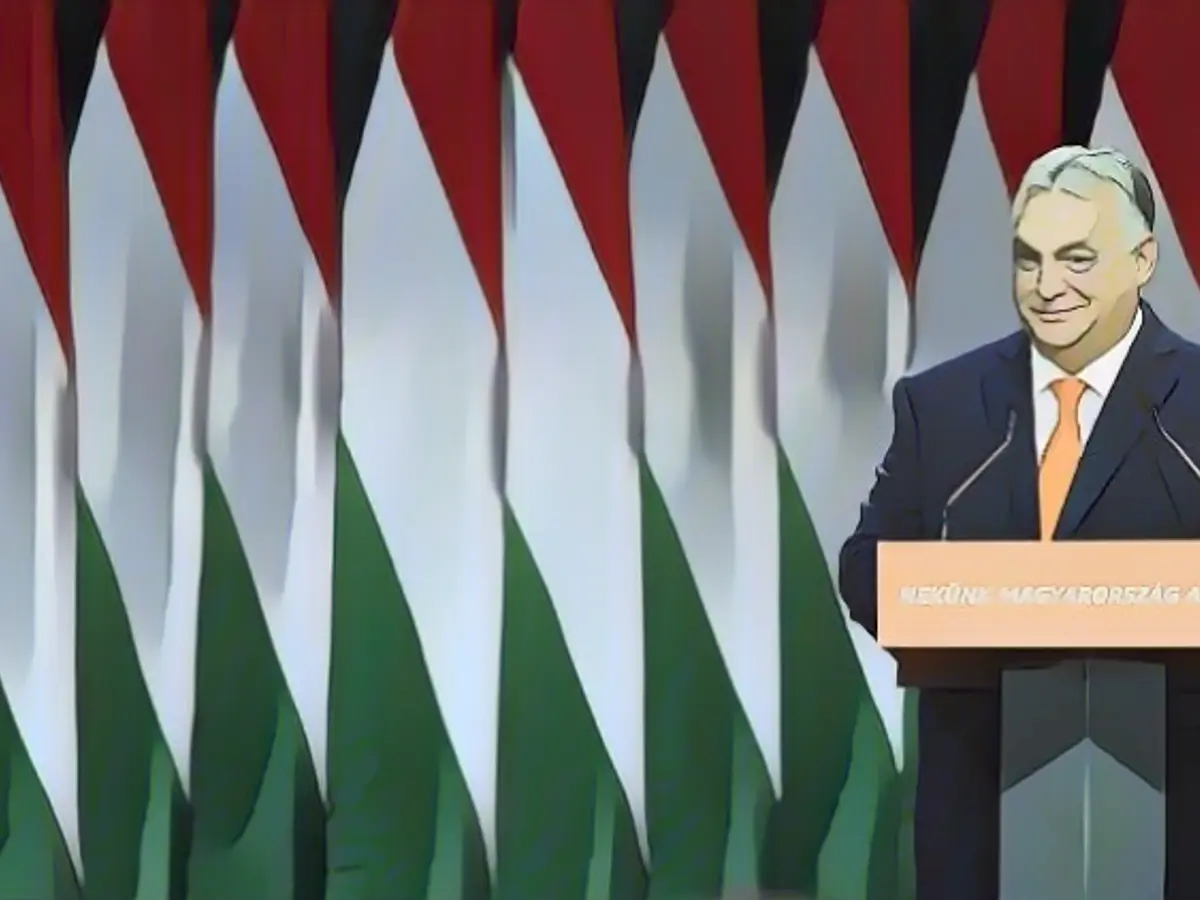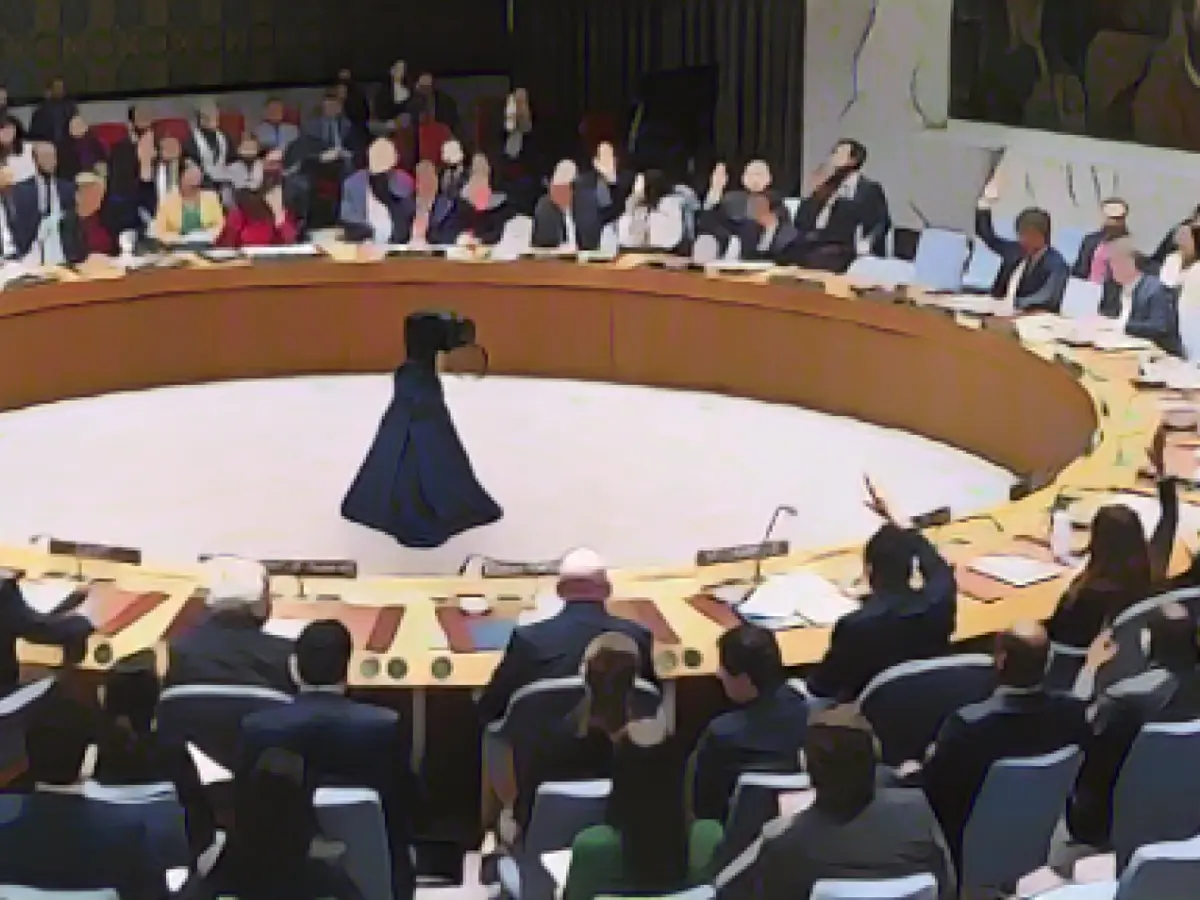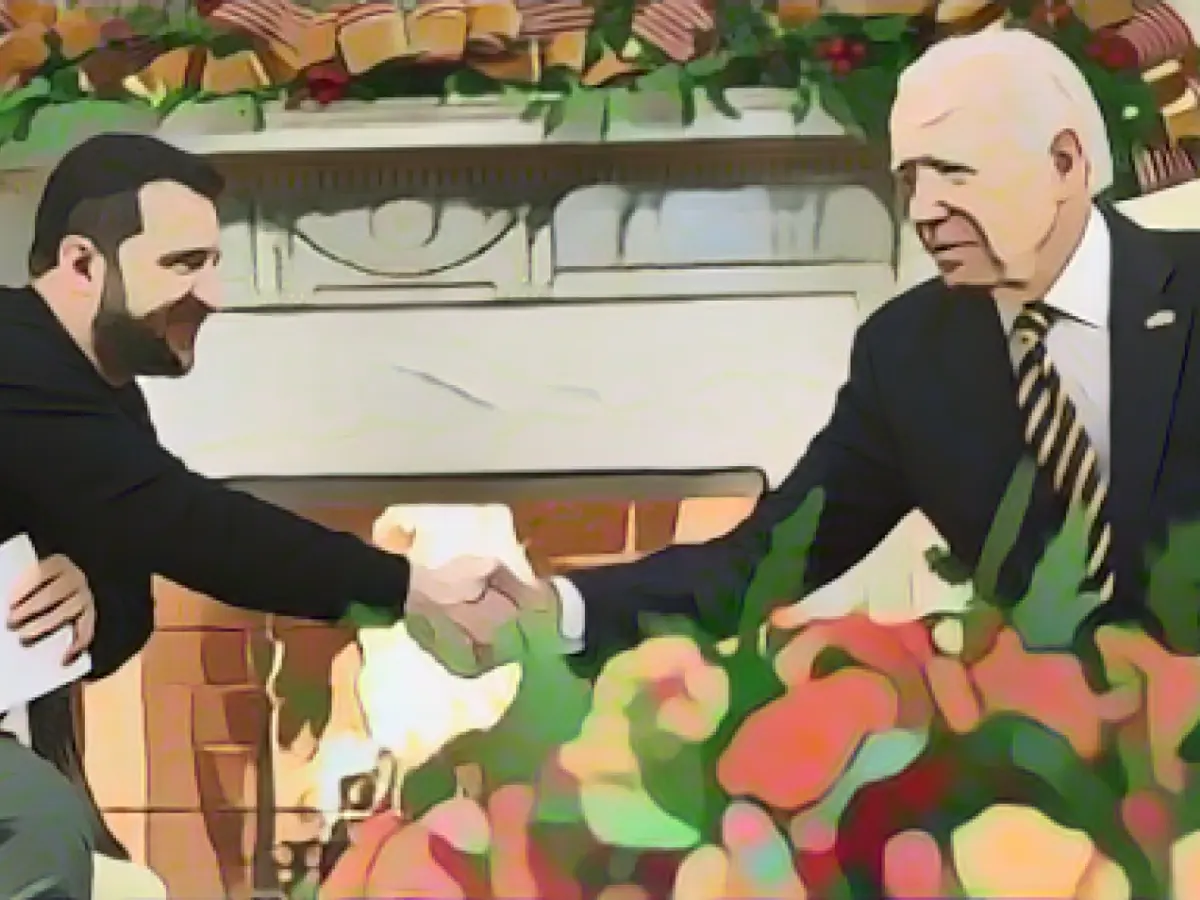Hungary's Government Stands Against EU Talks with Ukraine
Prime Minister Viktor Orbán's Fidesz party in Hungary opposes the European Union (EU) engaging in accession talks with Ukraine. The Hungarian leader is suggested to deliver a strong message against the EU summit's favorable decision next week, as per a resolution proposed in Budapest's parliament.
The EU Commission's pitch for these negotiations has been met with skepticism, threatening to stir unrest among the 27 EU nations. Concerns towards Hungary obstructing a decision for commencing talks have been rampant. Orbán himself had hinted at not favoring an affirmative decision earlier in November. A unanimous verdict among the 27 EU leaders is necessary for these discussions to proceed.
EU diplomats raise various reasons for Orbán's stance. The first revolves around Hungary's proximity to Russia, on which Hungary still depends for its energy needs. Secondly, Hungary requires the EU to release significant financial aid, held back by the EU Commission due to infractions by the right-wing conservative government in the judicial sector.
Orbán also criticized the EU Commission for the lack of a detailed analysis surrounding the consequences of Ukraine's accession on the EU. He subtly pointed towards the Russian annexation and potential financial repercussions for Eastern European EU nations expecting aid from Brussels if Ukraine comes aboard.
Bonus Insight: Deeper Detail on Hungary's Position
- Fidesz stresses the EU's necessity to comprehend the ramifications of Ukraine's EU accession talks thoroughly. Hungary believes the EU should carefully evaluate how such a decision would influence financial aid distribution within the EU, taking into account its reliance on Russian energy.
- Hungary holds apprehensions towards Russia's influence and the possible impact on aid to Eastern European EU nations.
Further Reading:
The opposition to the EU's accession talks by the Hungarian prime minister stems from three primary reasons.
- Close Ties with Russia: Hungary shares strong ties with Russia, which has prompted contrasting opinions on Ukraine's situation. Hungary's infatuation with Russia has led to dissatisfaction with EU sanctions, elevating the country's gas prices and inflation.
- Ukrainian Minority Concerns: Fidesz expresses significant concerns over the treatment of the Hungarian minority in Ukraine. Orbán has criticized Ukraine and its actions, which he believes tarnish Hungary's international standing.
- Economic Interests: Hungary relies on EU aid for its development, yet the country has been critical of the EU's handling of certain issues. Fidesz's hardline stance on Ukraine is also influenced by economic considerations, as Hungary aims to keep its ties with Russia intact.
These elements collectively shape the Hungarian government's stance on EU's potential association with Ukraine, reflecting an intricate blend of geopolitical, economic, and science diplomacy concerns.








